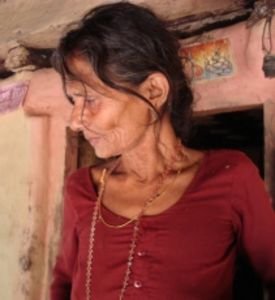Advertisement
Published: September 11th 2008

 Chalidevi
Chalidevi
In tears as she describes her fears of surgery and her submission to uterine prolapse. Chalidevi Regmi isn’t interested in having surgery to treat her prolapsed uterus. She has given up on the idea of an improved life, and she is ready to die.
At only 55 years old, Chalidevi has seen a lot in her life. She was married at the age of eleven and followed her husband, who was in search of work, to a variety of towns and villages across Nepal. She has given birth to five surviving children as well as two stillborn children. She has raised a family and run a household on her own, like most women from the area only taking a break from her daily routine of domestic and agricultural chores for eleven days after delivery.
Twenty four years ago, after the birth of her last child, Chalidevi developed the condition that is so common for women in this society. Unlike most women, however, Chalidevi had immediate access to health care, and was able to use a ring pessary to support her uterus and prevent further acceleration of the condition. She used the ring pessary for more than a decade until one day when she suffered a serious accident while grinding rice. The force of the

 A vision
A vision
of what may be the future for many womenaccident cause Chalidevi’s uterus to advance further into what is likely fourth stage prolapse, at which point a ring pessary was no longer a viable or effective solution. She hasn’t sought treatment since.
Chalidevi’s story is like many of those narrated by poor women from rural Nepal, only Chalidevi—a decade older than many of the women interviewed—is like the tragic specter of what they may become. Most of the women I have interviewed are too poor to seek treatment or do not have access to relevant health care services. Like Chalidevi did after her accident, these women will eventually (if they haven’t already) reach a point at which they cannot sustain interest in seeking treatment. Rather they will, like Chalidevi, accept their condition as a burden they must bear as women in their society. And, with little other option, they will resign to living with uterine prolapse until they, too, are ready to die.
Advertisement
Tot: 0.046s; Tpl: 0.01s; cc: 7; qc: 23; dbt: 0.0234s; 1; m:domysql w:travelblog (10.17.0.13); sld: 1;
; mem: 1.1mb

 Chalidevi
Chalidevi
 A vision
A vision